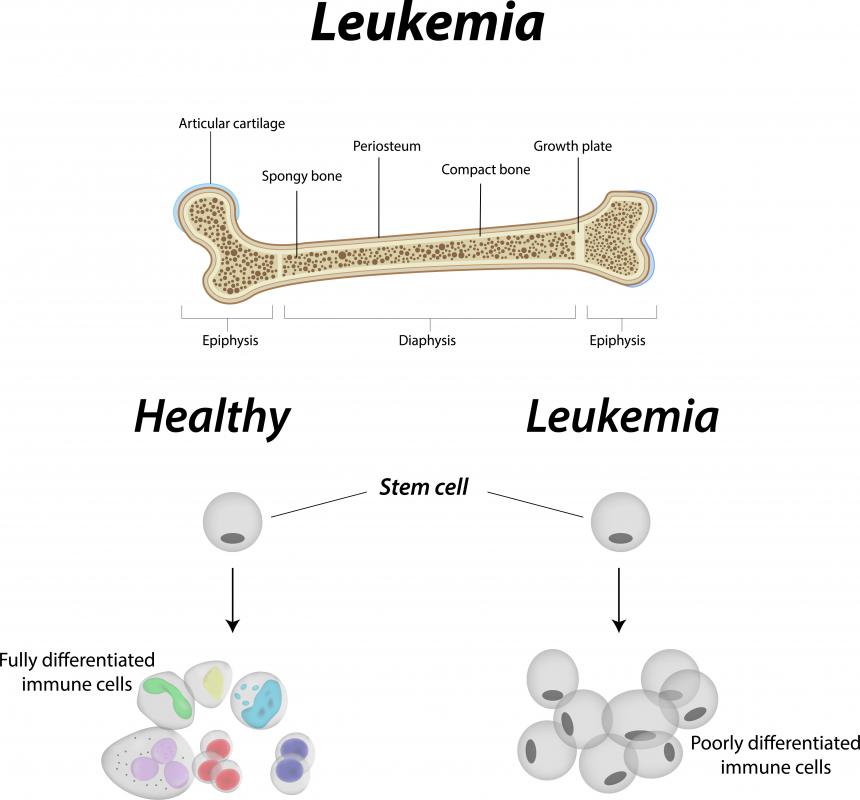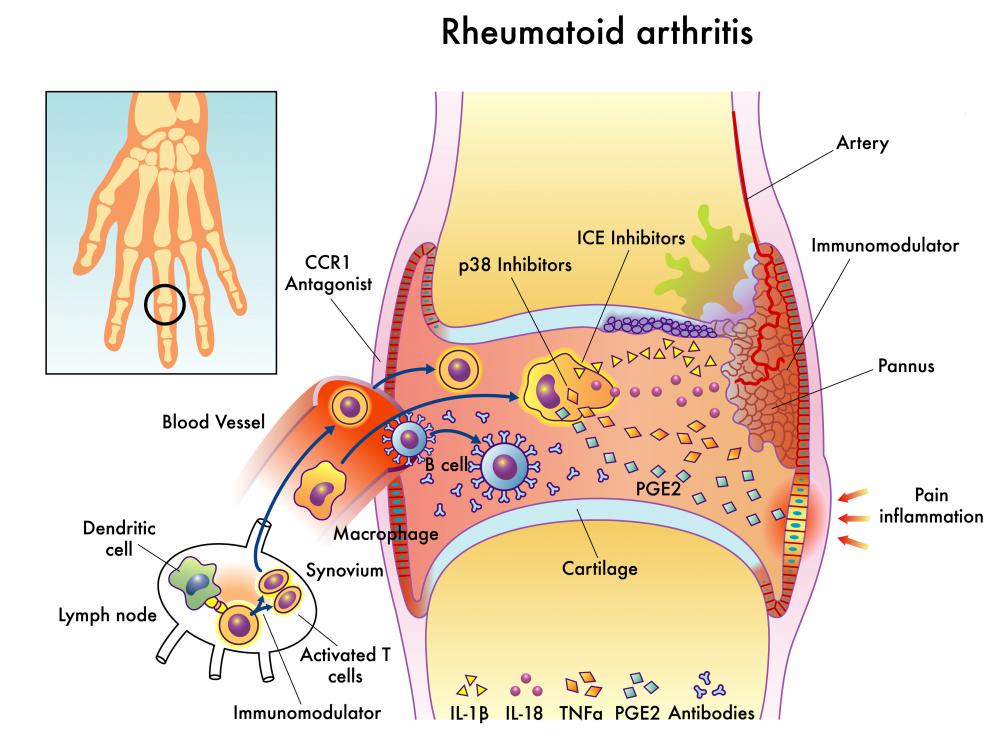At WiseGEEK, we're committed to delivering accurate, trustworthy information. Our expert-authored content is rigorously fact-checked and sourced from credible authorities. Discover how we uphold the highest standards in providing you with reliable knowledge.
What Are the Causes of Neutropenia?
Neutropenia is a condition in which a person does not have a high enough amount of neutrophils in the blood. Neutrophils are a type of white blood cell that are primarily responsible for protecting the body against bacteria, fungi, and other foreign substances. People who have neutropenia tend to be at a much higher risk of developing infections and diseases. The causes of neutropenia tend to be other underlying health issues that can end up destroying neutrophils.
One of the possible causes of neutropenia is an underlying congenital condition that causes abnormalities in bone marrow. Bone marrow is a substance found in the bones that helps produce blood cells. Certain conditions may prevent bone marrow from fully producing blood cells. These conditions include myelokathexis, a condition that causes a reduction in the amount of white blood cells, and Kostmann's syndrome, in which a person is born with nearly no neutrophils in his or her blood. Conditions affecting bone marrow tend to be present at birth and are thought to be the result of genetic abnormalities.

Cancer is another of the potential causes of neutropenia. Some types of cancer, such as lymphoma and leukemia, may cause abnormal cancer cells to accumulate in the bone marrow and prevent it from effectively producing neutrophils. Chemotherapy and radiation, two of the most common treatments used to destroy cancer cells, can also harm bone marrow functioning as a side effect and may result in neutropenia.

Certain drugs may interfere with the production of neutrophils by the bone marrow. Antibiotic medications, commonly used to treat infections caused by bacteria, may negatively affect the functioning of bone marrow. Diuretics have also been found to be one of the potential causes of neutropenia. Diuretics, often referred to as water pills, are a category of medications that cause a person to urinate more than normally in order to remove excess amounts of water and salt from the body and may be used to treat conditions such as high blood pressure, kidney disease, heart failure, and liver disease. Other drugs that may cause neutropenia as a side effect include penicillin, some non-steroidal anti-inflammatory drugs, and angiotensin-converting enzyme (ACE) inhibitors.

Autoimmune disorders, conditions in which the body begins attacking its own substances as if they were harmful antibodies like bacteria, viruses, or fungi, can also be one of the causes of neutropenia. Rheumatoid arthritis, a disease that causes severe stiffness and pain primarily in the joints, is one of the most common autoimmune disorders that may contribute to neutropenia. Other autoimmune disorders that may be associated with neutropenia include lupus and Felty's syndrome.
AS FEATURED ON:
AS FEATURED ON:

















Discuss this Article
Post your comments